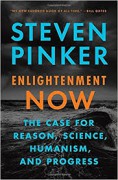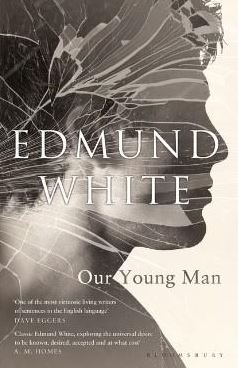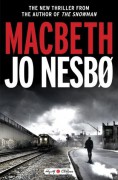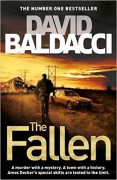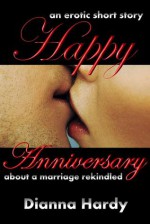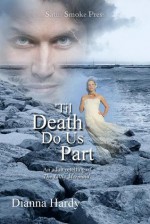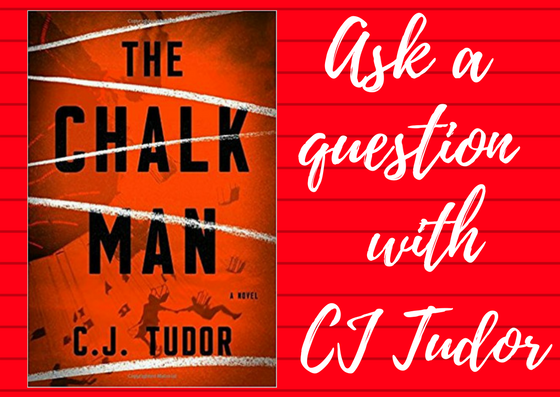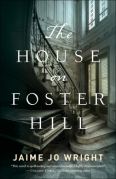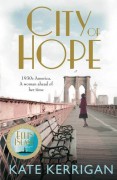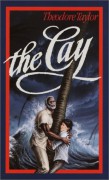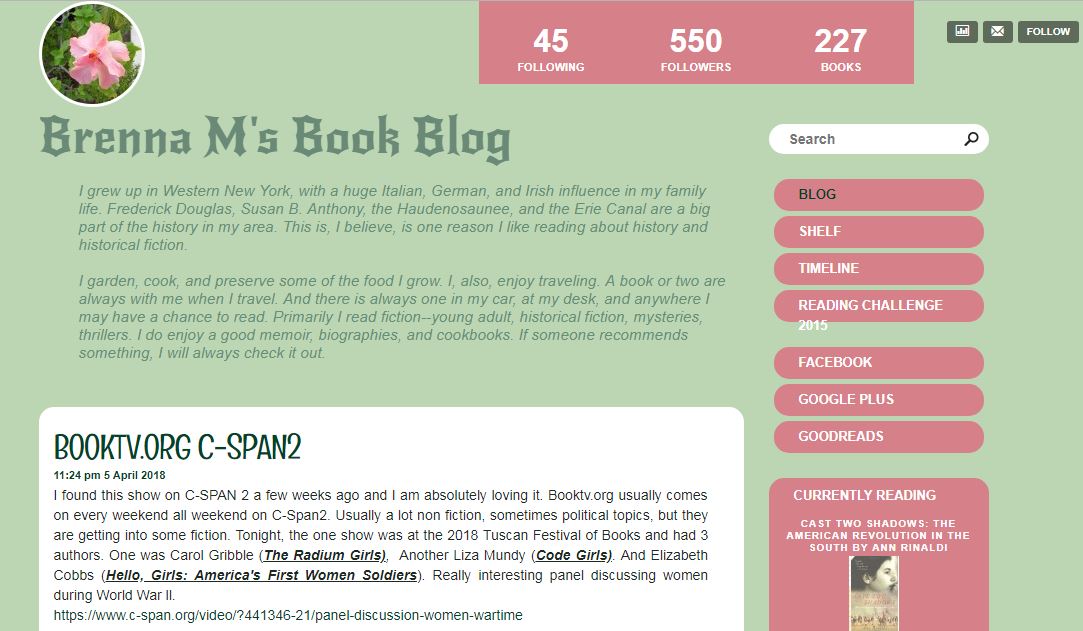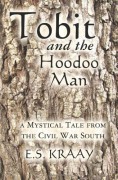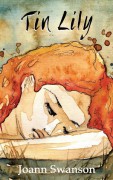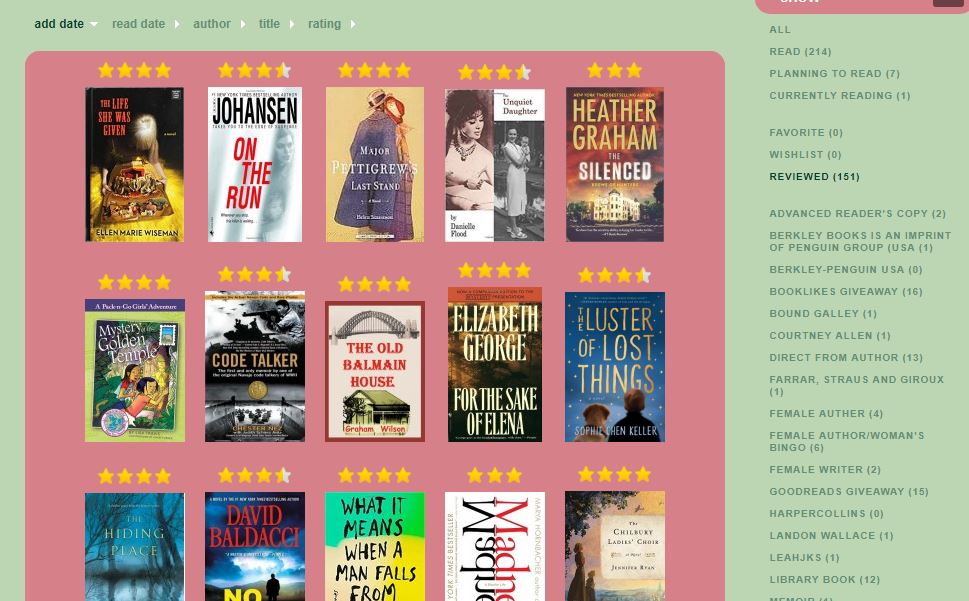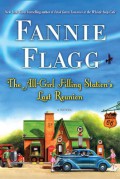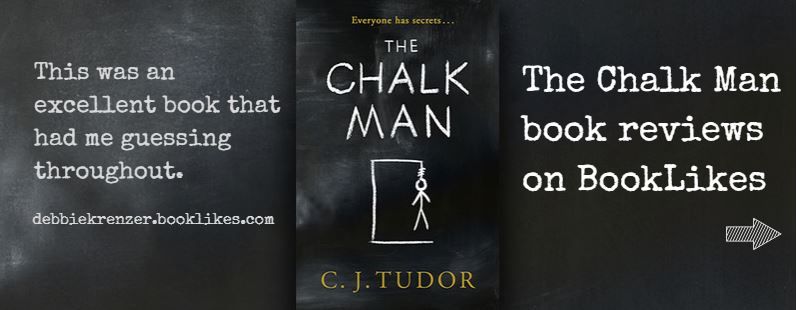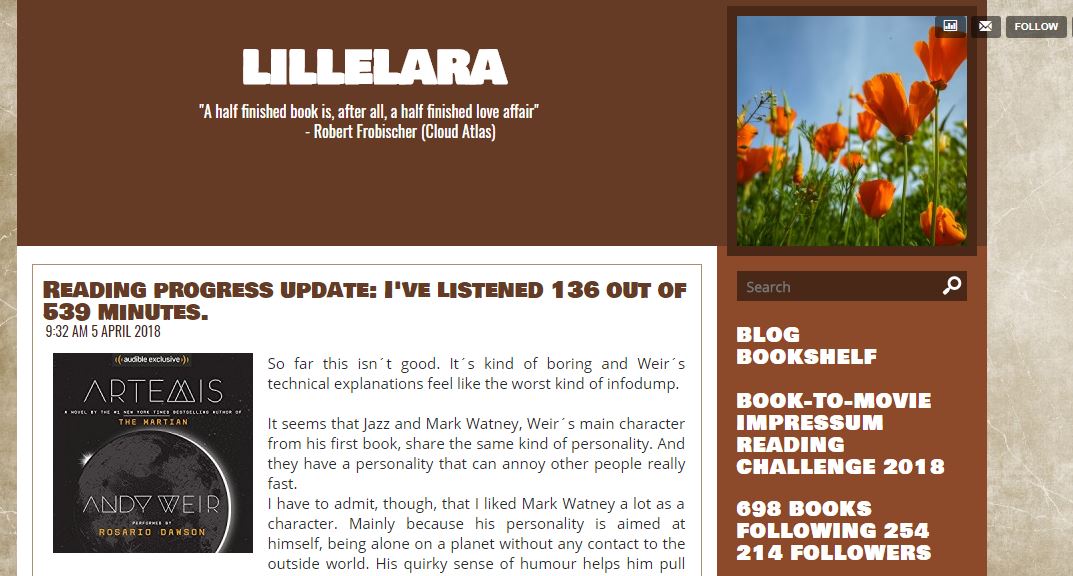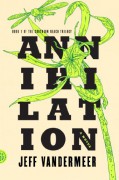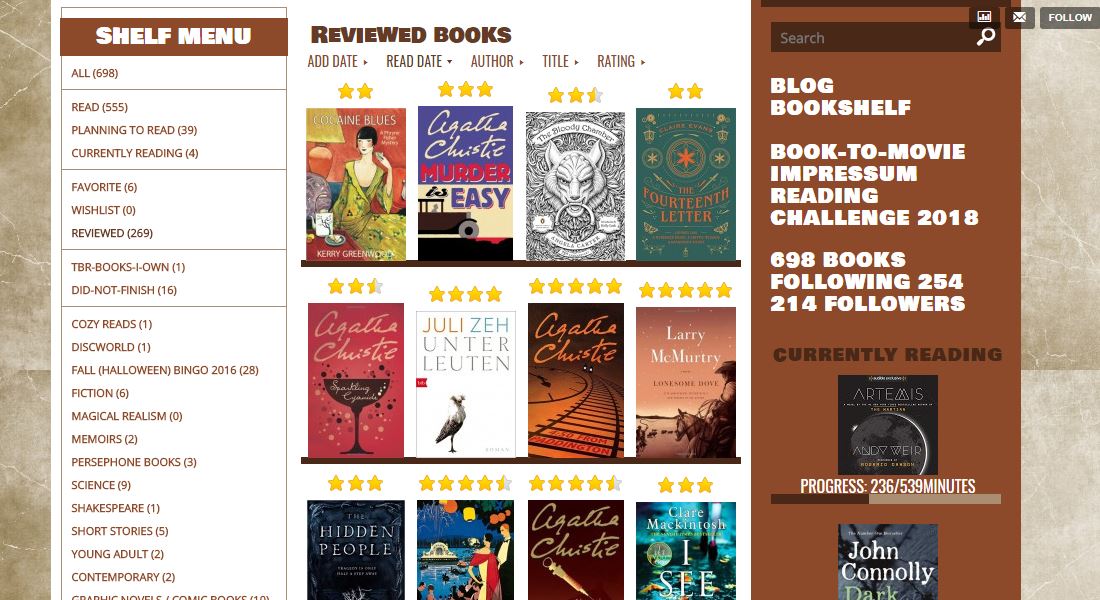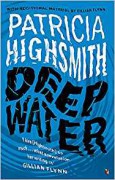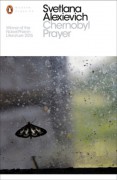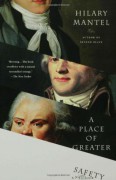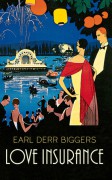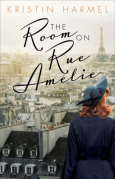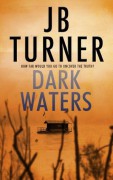BookLikes
World's #1 Blog Platform designed for book bloggers, reviewers, writers - all Book Lovers. Your Reading Life. Redesigned.
New release: Author interview with Kathryn Atwood & "Courageous Women of the Vietnam War" Giveaway

Kathryn Atwood is the author of many nonfiction books about war, targeted at teens and young adults. Her newest title, Courageous Women of the Vietnam War: Medics, Journalists, Survivors, and More (Women of Action), will be released tomorrow, on May 1!
Read our BookLikes interview and get to know the author, who tells us all about her writing, how she got started, and what interests her in the topic of war. Enter our giveaway contest to win one out of 5 e-books that Kathryn has so generously provided for BookLikes readers!
Win Courageous Women of the Vietnam War
Giveaway Apr. 30 - May 20, 2018
Enter to win
One of just a handful of women reporting on the Vietnam War, Kate Webb was captured by North Vietnamese troops and presumed dead—until she emerged from the jungle waving a piece of white parachute material after 23 days in captivity. Le Ly Hayslip enjoyed a peaceful early childhood in a Vietnamese farming village before war changed her life forever. Brutalized by all sides, she escaped to the United States, where she eventually founded two humanitarian organizations. Lynda Van Devanter was an idealistic young nurse in 1969 when a plane carrying her and 350 men landed in South Vietnam. Her harrowing experiences working in a combat zone hospital would later serve as inspiration for the TV series China Beach.
In these pages readers meet these and other brave women and girls who served in life-threatening roles as medics, journalists, resisters, and revolutionaries in the conflict in Vietnam...
REQUEST YOUR E-BOOK
Tell us a few words about yourself - whatever you want to share about your personal and professional life, but also why you decided to become a writer.
I’m a vocalist, music historian (historysingers.com), and piano teacher, and the latter vocation serendipitously led to my becoming an author. I was teaching at the Steckman Studio in Oak Park, IL, when I met Lisa Reardon, a parent who also happened to be an acquisitions editor for the Chicago Review Press. Lisa is no longer with CRP but her wonderful influence can be seen in all of my books.
I first discovered my passion for putting pen to paper while in college. I started out as a history major with an English lit minor then switched halfway through. When I finally allowed myself the time to develop as a writer I wrote poems and essays for some quirky lit journals while reviewing history books and biographies for two review sites. Then I met Lisa.
What inspired you to write about wars? It seems like such a difficult topic, even more so as you've written about many wars: World War I, World War II the Vietnam War ... what is it about the topic of war that interests you?
I’ve been fascinated by World War II since I was a teenager when I watched a show called “World at War” with my WWII Army Air Corps vet dad. The Hiding Place came to theaters at that time as well and it left me with the following question: What sort of person would one have to be, what sort of character would one have to possess in order to defy a totalitarian regime? That question finally found an answer in my first book, Women Heroes of World War II. All the women featured there defied the Nazis to one extent or another.
War brings out the best and the worst in people, which makes it such a fascinating study. But I’ve had specific additional reasons for writing all my books, generally because I want to wrap my brain around a specific war. Courageous Women of the Vietnam War came into being because although I lived through that war as a child I didn’t understand it. Young men in my family circle were going there, my friends and I all wore POW bracelets, but we were taught very little about it. Writing the introductory material vastly improved my grasp of the conflict and writing the narrative chapters allowed me a close-up view through the eyes of women who were there.
Your books are listed as targeted at young adults, teens. Why did you choose this audience?
When I first met Lisa, she wanted to launch a young adult series about historical women which is now CRP’s Women of Action series. So the audience was chosen for me. But as I began writing Women Heroes of World War II the audience I kept in mind was my 12 year-old self—an undermotivated student who loved to read. I was deliberately trying to reach young people who might not believe they like history but who might be enticed towards interest in a particular historical woman if the narrative was compelling. To understand what made that woman tick, one has to understand her setting and voila! The reader is learning history!
REQUEST YOUR COPY
What would you say sets your books apart as books for teens, as opposed to other history books for adults? What makes them different? How do you write to make sure you attract your readers' attention, and to ensure that they understand the points you would like to get across?
 I try to arrange the facts of each brief chapter in such a way as to get to the heart of the individual person’s story while keeping the narrative moving. In the first book, especially, I tried to start in the middle of the story, then provide some background before continuing with the denouement. I knew I’d hit my stride with Women Heroes of World War II — the Pacific Theater when the Booklist reviewer wrote that each chapter “could constitute a cliffhanger screenplay.”
I try to arrange the facts of each brief chapter in such a way as to get to the heart of the individual person’s story while keeping the narrative moving. In the first book, especially, I tried to start in the middle of the story, then provide some background before continuing with the denouement. I knew I’d hit my stride with Women Heroes of World War II — the Pacific Theater when the Booklist reviewer wrote that each chapter “could constitute a cliffhanger screenplay.”
I’m not really trying to make a point in my books. Aside from the introductory material, I’m merely trying to present history through the eyes of the women who experienced it. I strongly believe that we need to teach young people how to think, not what to think. We need more room for freedom of thought and differences of opinion in this country, on both sides of the political divide! It’s crucial to provide teens with an unbiased view of history for, as the saying goes, those who don’t learn history are doomed to repeat it.
Do you travel to the places you write about in your books? Do you think this is a necessary element of the "job" for a non-fiction writer?
I’ve been asked that question many times! One certainly needs to find a direct connection to history in order to write a good history book, but I believe I’ve managed to do that without traveling. For Courageous Women of the Vietnam War I found that connection through direct communication with the women themselves. One of them, US Army nurse Anne Koch Voigt, sent me a scrapbook filled with mementoes and photos from her year in Vietnam. It was a visual lightning bolt (and I believe her chapter contains the most photos and sidebars of any in the book!)
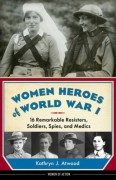 For Women Heroes of World War I I accessed dozens of digitized memoirs and mined them for quotes. In doing this I felt I was giving a voice to these women who experienced war a century ago. It was almost as exciting as my experiences while working on the first book when I spoke on the phone with the following people: George J. Wittenstein, a personal friend of Sophie Scholl; Barbara Moorman, the daughter of Johtje Vos; Nelly Hewitt, daughter of Magda Trocme; Muriel Engelman, a US Army nurse who came under direct fire during the Battle of the Bulge; and Diet Eman. I also exchanged emails with Paul Elsinga, a man who knew Hannie Schaft when he was a boy. All electrifying experiences!
For Women Heroes of World War I I accessed dozens of digitized memoirs and mined them for quotes. In doing this I felt I was giving a voice to these women who experienced war a century ago. It was almost as exciting as my experiences while working on the first book when I spoke on the phone with the following people: George J. Wittenstein, a personal friend of Sophie Scholl; Barbara Moorman, the daughter of Johtje Vos; Nelly Hewitt, daughter of Magda Trocme; Muriel Engelman, a US Army nurse who came under direct fire during the Battle of the Bulge; and Diet Eman. I also exchanged emails with Paul Elsinga, a man who knew Hannie Schaft when he was a boy. All electrifying experiences!
Many of your books focus on women? Why did you make that choice when you set out to write your books?
Again, that’s how I got started, but I’ve continued because I love to illuminate the stories of unsung heroes. There’s a reason we have Women’s History Month; most history, if studied in an overview sort of way, deals mainly with the efforts of men. Men’s stories are like the icebergs of history — their contributions are all that is visible after a particular period of time has passed, but there is so much more going on beneath the surface, so much history left behind. Women’s experiences and perspectives fill in all the blanks and make the picture complete.
Have you read Svetlana Alexievich's book about the role of women in war? Did it inspire you in any way?
 I’m halfway finished and I absolutely love it. Again, there’s nothing like the testimony of people who lived through history to bring the reader directly into the past. And I was impressed at how the women interviewed for that book were so human and honest about how their femininity and relative youth intersected with the horrors of war. In that aspect, many of the stories sound similar, but because the women had different roles, The Unwomanly Face of War has significantly widened my understanding of the Eastern Front.
I’m halfway finished and I absolutely love it. Again, there’s nothing like the testimony of people who lived through history to bring the reader directly into the past. And I was impressed at how the women interviewed for that book were so human and honest about how their femininity and relative youth intersected with the horrors of war. In that aspect, many of the stories sound similar, but because the women had different roles, The Unwomanly Face of War has significantly widened my understanding of the Eastern Front.
Follow Kathryn Atwood's blog on BookLikes:
http://kathrynatwood.booklikes.com/
Kathryn Atwood's books on BookLikes:
Poetry Debut: Author Interview with David Wasserman & "Tiny Footcrunch" Giveaway

David Wasserman is the author of a book of poetry, Tiny Footcrunch. Read our BookLikes interview and get to know the author, who tells us about his debut, and how and why he writes!
David has been very generous to BookLikes and offered five copies of his book to our readers - enter our giveaway contest to win!
Poetry giveaway - win Tiny Footcrunch
Apr. 27 - May 11, 2018
Tiny Footcrunch was born out of emotions and sharpened by society’s waning attention span. It delivers vast thoughts through tiny poems. Ten universal emotions. Sadness. Joy. Anger. Kindness. Fear. Love. Confusion. Humor. Curiosity. Hope. Ten petite poems carefully crafted and shepherded into each bloodline. This collection speaks to the era of texting tweeting twittering fast-paced visually digestible media we live in every day. Literature has changed. Long-form storytelling through print is falling out of favor while comments, posts and captions increasingly become the new narrative. These tiny poems bridge that divide.
REQUEST YOUR COPY
Tell us a few words about yourself - whatever you want to share about your personal and professional life, but also why you decided to become a writer.
Hi! I am David Wasserman from Connecticut. I live in a quiet spot out in the woods with my wife Katie and newborn daughter, Lettie. In college I majored in both Elementary Education and English Literature. I started teaching (fifth and second grade!) but a decade later began to miss that connection with literature.
Why did you choose to write poetry? Is this a choice an author makes, or does it "make itself"?
In bed one night I reached over to my nightstand. My hand hovered over a stack of three books but floated instead over to my phone, where my nightly reading became 140 characters at a time (on Twitter), picture books (on Instagram), and poorly-written biographies (on Facebook). I eventually became disgusted with myself for choosing these apps over literature, and much like someone might look in the mirror and emphatically decide they need to go to the gym, I decided to write. I guess you could say poetry and I chose each other, as it was the perfect medium to bridge that divide between short tweets and texts with novels.
When did you start writing? Your first book of poetry is out in a few days, did it take a long time to write?
I started writing some of the poems contained in Tiny Footcrunch in the summer of 2016, so it ended up taking a little over a year to finish. I began with simple thoughts, ideas and lines scribbled in a notebook while I sat on my front porch, and eventually edited those into something close to a manuscript. While the poems are obviously up to the interpretation of the reader, some events from that time period are evident, such as the passing of my grandfather, the loss of a cat, the political climate, and the upcoming birth of my daughter. Even though the poems are petite and haiku-length, they took a long time to write! Every word becomes that much more important.
REQUEST YOUR TINY POEMS
What are the emotions associated with a book launch when it's your first title, a debut?
Mostly excitement. Nervous thoughts about what family and friends might think about the book have crept in as the release gets closer, as well. Something I did not really expect to feel as much as I do is a swelling of pride and confidence. I am very proud of these tiny poems and so flattered that someone thought enough of them that they wanted to publish the book!
What are your future writing plans? Do you actually have any at this point, or will you start thinking about that after you release your first title?
I do have future writing plans! I was so excited that a publisher liked my poems and began thinking of other ideas not long after we started the editing process on Tiny Footcrunch. Right now I am working on a poetry manuscript inspired by Tarot cards. So far the poems are even more direct and terse than those in Tiny Footcrunch and I am really starting to see how it will take shape. I would love for this book to contain small illustrations as well.
Please tell us about your day and your writing habits. Do you write every day, and for how long? Do poems take more or less time than other literary forms?
I don't write every day. Is that horrible to say? Stephen King in On Writing has a section about how some authors write an enormous amount while others are lucky to get one word down on the page and I have to say that I am both those writers. Some days I will get five or six poems down and edited to where I like them. Other days I will just turn a phrase around in my head for hours, playing with words like seals with a beach ball. I'm lucky if I get anything jotted down even in the notes on my phone as I am falling asleep on days like that.
You live in a very quiet spot, in the woods - do you find this setting to be an inspiration?
I would suggest that my home in the woods is the biggest inspiration to my work. Everything from my cat sticking his head between the porch spindles to the wind chimes to the robin hopping around in the yard is fair game for poetry. The same is true for you wherever you live - look around with a poetic eye, turn on your other senses and the poetry of your environment will open itself up to you as well.
Follow David Wasserman on Booklikes
#37 Follow Friday with book bloggers: XOX

Hello Friday. Hello Friday with book bloggers. Meet a blogger who loves the paper books and long walks in the bookstores.
Follow XOX blog on BookLikes: http://xox.booklikes.com/
What are you reading right now? How do you like it?
Enlightenment Now by Steven Pinker. Liking it a lot so far. Steven Pinker put forth a reasonable argument that humans are progressing and need to be returned to the state of enlightenment.
Which book made you a book lover?
"The Vampire Lestat" by Anne Rice. I read this when I was still a teenager and it led me to discover a much bigger, stranger world of books. Before this book, I was still reading children and young adult fictions exclusively. I began to discover my own taste for books by trial and error. This book reading habit stays with me to my adult years. I like reading books and prefer it to a lot of other time-consuming activities.
How did your book blogging adventure start? What do you enjoy the most about it?
From GR, LibraryThing. I keep buying the same books because I'm not reading as fast as my book buying habit. So, I need to keep track on what I have already bought and that this led me to join readers' sites. I started it with a note basically reminding myself how I feel about a book. And now with Booklikes, I get to update even more often to have a snapshot of my reaction to the books I'm reading. I enjoy the interaction between readers on BL and I enjoyed reading other readers' blog. I see it as a form of exchange between readers who love books.
Your blog name is XOX. Can you tell us more about this phrase and why it’s your blog title?
XOX is an old screen name. It came from how I used to sign cards when I was very little. It then become my screen name. I also like the neutrality of it that helped to skip over the preconception people have on gender and race. I quite like it.
Which books are you most excited recommending to your followers?
Terry Pratchett and Douglas Adams books. Their books are enjoyable, and lead readers to think while being humorous with a certain light-heartedness to it. Anyone could lecture readers in their books if they have something important to say. But telling readers something without lecturing at them, that take skills.
How do you find new books to read?
By going to the bookstores and see what's new. I'm a strong support of physical bookstores and prefer to buy every book in person. Sometimes I find books to read by reading book blogs. Readers honest reviews are wonderful introduction to new books, especially books that are not usually in the same genre I usually read.
Are you an adventurous reader picking up new genres or are you loyal to your favorite book genres?
Adventurous to a certain extend. In the fear of missing out on things, I would try to dip into a genre and see if could build a taste for it. I stay loyal to a certain genres because they are a joy to read. But venture out for balance, so I wouldn't miss out too much.
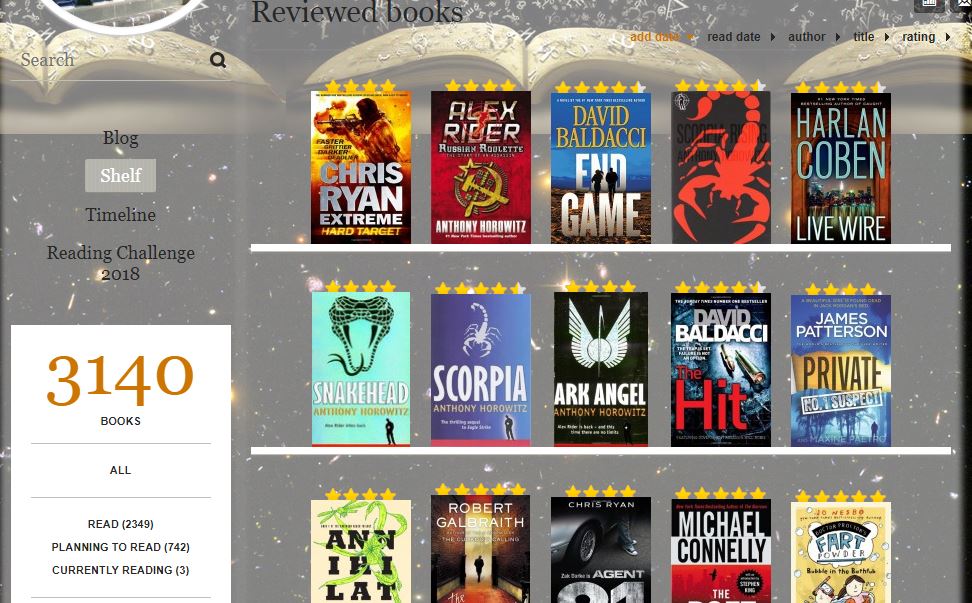
According to your BookLikes Read Shelf you’ve read over 2K books! How much time do you spend reading daily?
Every waking hours when I'm not doing something else. I always have a book with me, so that I could read on the train, or read while waiting for the food to arrive during lunch. When other people are scrolling on their phones, I would be reading usually. I would rather lessen my phone scrolling time and devote it to reading.
Do you review all read books? How do you write a book review?
I do now. I used to pick books to review. With this site, I reviewed almost all the books I read. My book review is very personal as I imagine me as a the reader. This is for me to read when I'm older and found a familiar book on the shelf, but could no longer recall what it is about. It would be good to have a detail book review on this book, regarding what it is about, who are the main characters and what I like or dislike about it. A book and a reader has a personal relationship that last the duration of the reading. At the end, what I gain from this short interlude, I wrote it down in the review.
What are your three favorite book covers?
Orphan X by Gregg Hurwitz, The Graveyard Book by Neil Gaiman and Our Young Man by Edmund White.
Why reading is important to you?
Reading benefit me in a lot of ways. Reading non-fiction books let me learn about things that writers have spent years to master. I benefit from what experts have already known in their respective field. Reading fiction let me go into the minds of the characters and learn what other people/characters are thinking, and in turn, learn about myself and my own thinking. I grow with reading.
A paper book or an e-book?
Paper book. Strong support for paper books. As I said earlier, I like physical bookstores and the human interaction that comes with it. If I got an e-book, I might have to re-read it in paper form. As e-book still lack the certain something for me.
Three titles for a holiday break?
Macbeth by Nesbo Jo
The Fallen by David Baldacci
Favorite quote?
"Do or do not, there is no try" – Yoda. (fictional character)

"Common sense is not so common." – Voltaire (non-fiction)

If you could pair a book with a drink, what would you prepare to sip while reading?
It depends on the book.
For Michael Connelly or Christopher Hitchens books – a good whiskey as Harry and Christopher both drink whiskey.
For Lee Child – Jack Reacher drink so much coffee that I have to get one myself. For Harlan Coben, a light beer.
Shelfie time! Please share your home library photos :)
Messy book library.



Thank you!
*
Have you missed previous Follow Friday talks? Use ffwithbookbloggers tag or click the catch up links below:
New release: Author Interview with Dianna Hardy & "Blood Shadow" Giveaway

Dianna Hardy is the author of ten novels, of which the newest one, Blood Shadow, will be released on April 27! Read our BookLikes interview and get to know the author, who tells us all about her writing!
Dianna has been very generous to BookLikes readers and offered three SIGNED paperback copies of her new book - enter our giveaway contest to win!
BLOOD SHADOW GIVEAWAY
Apr. 27 - May 11, 2018
Win a signed copy
Five years after her life changed forever, Jennifer Warren has put her past firmly behind her - at least, she's tried. A few sweaty nightmares here and there are a small price to pay for the freedom she won. No longer a werewolf, but human, she works as an office manager for a health and beauty spa in York, and keeps herself to herself. It's barely enough to pay the bills, but it's quiet and safe, and the clique of the staff means she's left well enough alone - no one asks her questions; no one wants to get to know her better. But Jennifer's just received another note - one of those that her mysterious, anonymous 'friend' likes to leave her every now and then; warnings of things to come, people not to trust... Her elusive friend has saved her more than once the past five years.
Only this note has left her breathless; her chest tight. A Supermoon is coming - the first in thirty years - and with it, a total lunar eclipse.
Jennifer's disowned her past, but it hasn't disowned her. As the earth shadows the full moon, her own shadows threaten to turn on her. Can you ever escape what you truly are? Blood never lies.
REQUEST YOUR FREE COPY
Tell us a few words about yourself - whatever you want to share about your personal and professional life, but also why you decided to become a writer.
Thanks so much for having me here. It feels more for me, in some ways, that I didn't decide to become a writer - it just sort of happened. I was an early reader, with a mother who loved fiction books and a grandmother who was an English teacher (her first language - and mine at the time - being Portuguese), so they both thrust me into the world of books. Luckily, I loved books, too, so never felt overwhelmed by them. They'd read me story after story - books in English as well as Portuguese, and I was reading words back to them by the age of three. As soon as I could, I was reading independently and I couldn't get enough of books! When I was six years old, I read A Little Princess, by Frances Hodgson Burnett, and I was entranced by it. It made me laugh, cry, and feel like anything was possible. It was the first book I remember feeling emotional about to that extent, and that was the moment I knew I wanted to write something that would make others feel as much; that would make others laugh, cry, and feel like anything was possible.
But while I wrote a lot (for fun) throughout my childhood and my teens, I wouldn't become a "writer" until I had some time on my hands after giving birth to my daughter in 2009. I didn't know what to do with the tedious long nights of little sleep and constant feeding, so I began to research self-publishing on the internet, and discovered you could do it yourself online for very little outlay. Gone were the days I'd have to pay £2000 for 50 books and try to sell them door-to-door. So, one day, I sat down and compiled all the poems I'd ever written, and printed a paperback anthology of them. Then, I created an collection of brand new poems - vampire poetry - all about the theme of dark obsession and possession through the vampire myth. That was A Silver Kiss (Vampire Poetry) published in December, 2010. I tried my hand at erotica after that, partly to better understand the eBook market, which is when I wrote Happy Anniversary (an erotic short story about a marriage rekindled), but finally - after writing and publishing The Witching Pen in June 2011 - I understood that writing fantasy and romance (albeit often explicitly) was more my forte. I've always loved both genres anyway.
And suddenly, I realised I was a writer. I was doing it.
I currently live in the south coast of the UK with my fiance, our daughter, and our two black cats, Green and Indigo.
You call yourself a writer of "cross-genre fiction" - please tell us why, and what this is.
I've never been able to stick to writing one genre within any story, although I have tried. I'm not very good at writing 'formula'. For the most part, I let the characters do what they want, and the stories become this meld of fantasy, horror, and romance - perhaps with a hint of god punk or sci-fi - often told explicitly because I've always been drawn to the intimacy of sexual and violent expression in film and literature. The film Crash, by David Cronenberg is one of my favourites.
I also have a series which is cross-genre romance, magical realism and women's fiction, which is sort of the "light" to my other dark fantasy books.
Cross-genre fiction is really just that: fiction that mixes two or more genres, to create something different and hopefully exciting, that will in turn stimulate debate and conversation, or simply offer a thrilling new read that can't be pigeonholed into any one category.
When did you start writing and how many books have you written so far?
If we don't count Little Miss Rainbow which I wrote when I was eight, and the very few poems I got published by small press magazines in my teens, I began writing to self-publish in September 2010. I've so far written (not including out-of-print titles) ten novels, five novellas, one novelette, two short stories and one poetry compilation.
Your new book is due to be released very soon (April 27) - what are the emotions associated with a book launch when it is not your first title, once you are an experienced writer? Does it get "boring" with time?
 No - never boring at all! Reaching the words "the end" once you've hit that last full stop remains a natural high, and at every new release I'm still very nervous of how readers will react to the book. Every book is different to write, so the feelings surrounding each launch are always a little different, too. With Blood Shadow (out on 27th April), I'm taking readers in a slightly new direction with my writing, with the book acting as both a companion novel to a completed series, and a prequel to a new series. I have no idea how it will be received, although feedback from early readers have so far been positive.
No - never boring at all! Reaching the words "the end" once you've hit that last full stop remains a natural high, and at every new release I'm still very nervous of how readers will react to the book. Every book is different to write, so the feelings surrounding each launch are always a little different, too. With Blood Shadow (out on 27th April), I'm taking readers in a slightly new direction with my writing, with the book acting as both a companion novel to a completed series, and a prequel to a new series. I have no idea how it will be received, although feedback from early readers have so far been positive.
REQUEST YOUR COPY
Your website lists a publishing plan where you list two books a year in 2018, 2019 and 2020! How impressive! Why did you build this "schedule" for yourself and what do you do to stick to it?
Thank you! I honestly don't know how impressive it is, LOL. My aim is to write at least 1000 words a day, which is how I stick to the schedule. That basically means I can write a 90,000 word novel in 3 months, which leaves two months to edit and format, and one month between each book to prepare for the next (and rest for a bit if I get the chance!). I found this was how I write best and most efficiently, so the schedule was really borne out of that. A lot of writers write faster than me, but I suffered burnout a few years ago which in turn took over a year to get over - I'll never let myself fall into that nightmare again, so I take care of myself better now and try not to get too stressed with word count and deadlines.
Please tell us about your day and your writing habits. Do you write every day, and for how long? Do you have a "day job", or is writing what you do for a living?
Yes, I write for a living, not that that's always easy - most of the time it's not, and the reward can't always be considered monetary. My work day usually starts at 9 a.m. I'll write at least 1000 words and edit what I've already written until about 1 p.m., then have lunch; then I'll get in about half an hour of marketing online before I stop. Sometimes, I do a bit more marketing / promo from about 4-5 p.m. Or I'll fit it in between 10 p.m. and midnight, or write even more between those last two hours. If I can let the day go, I'll be in bed by 1 a.m. latest. If the last scene I wrote is still in my head, I've been known to carry on writing until about three in the morning. I'll also be good to myself, though, and take a day off here and there to spend with my fiance, or go to the beach. All of that sounds very organised, doesn't it? LOL. In practice, it's really not! :)
Follow Dianna Hardy on BookLikes
How to add links to your blog posts
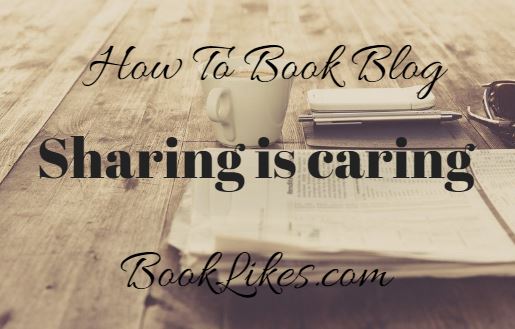
Sharing your book reviews sometimes requires sharing links:
- to your other blogs, webpages, social profiles etc
- to the book pages
- to the author pages
- to your fellow bloggers
All of this can be easily done with your blog on BookLikes. We'll present you several ways on sharing additional links within your review or a post on BL.
1. Source link
If you quote a piece of writing or share an image, a passage, a quote from other site, please use the Source Link spot (on the right).
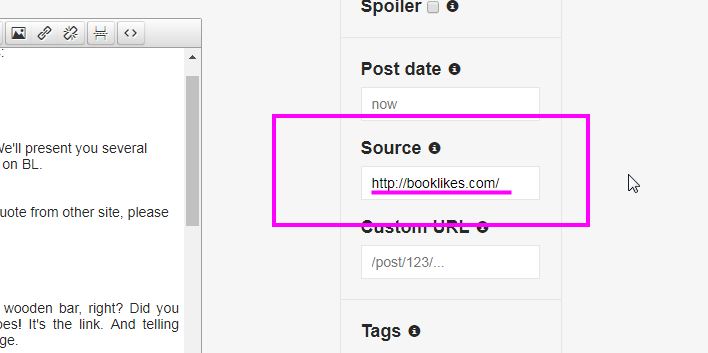
The link will be added at the bottom of your post and will be visible in your Dahboard and the blog view.

2. Book page links
When you write a book review, you select a book on the wooden bar, right? Did you notice that the little cover has got a link icon? Yes, it does! It's the link. And precisely it's a book title + author phrase linked to a book page.
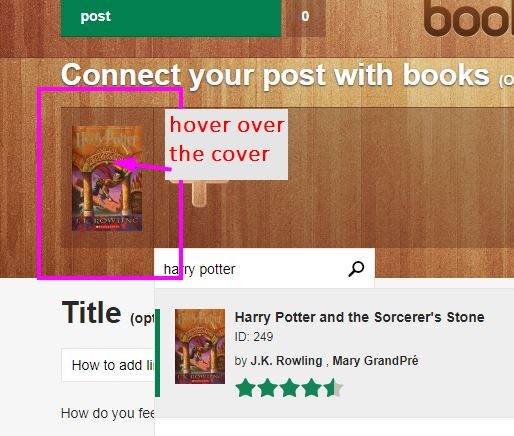
If you'd like to add a linked book title just click the icon and it will be added to your text.

The text will be added with the book details from BookLikes book pages (title, author(s)).
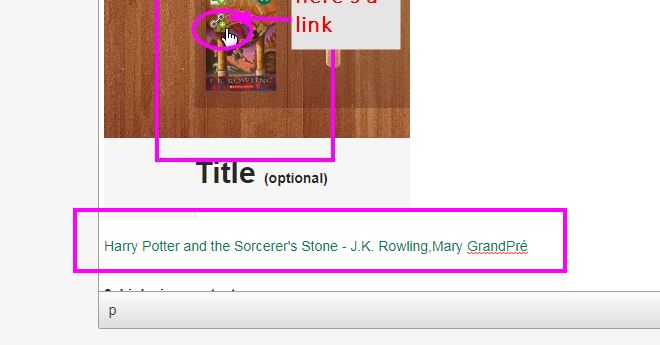
But if you wish to change the text to display or link, mark the text (or just click on it) and click the Insert/edit link icon on the upper bar.

Then make the changes to the text, and/or change the link. And Save to view the effect.
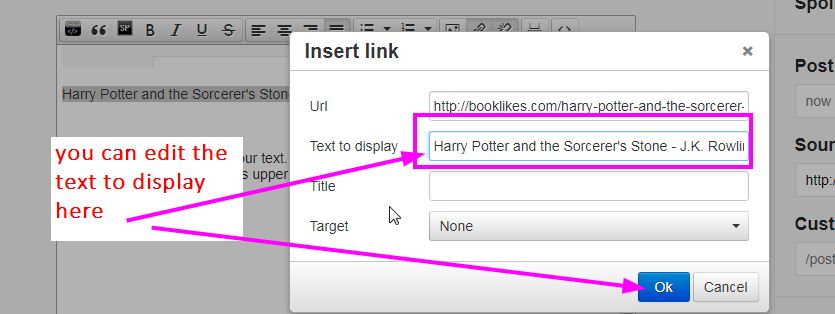
3. Link your text or graphics
You can link any phrase or photo in your text. Simply mark the phrase and click the Insert/edit link icon visible on the text editor's upper bar, add a link and Save.
It work the same for the image.
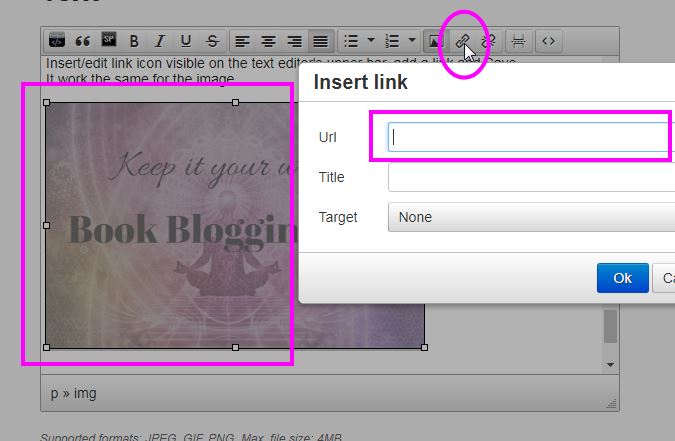
Happy blogging!
Looking for more BookLikes how-to and tutorial posts? Click HERE to view our tutorials and make sure to follow BookLikes blog to view our news on your Dashboard.
No interview with a blogger today. Feel free to share some insults in the Shakespearean style
We know it's Friday. We know it supposed to be Follow Friday with book bloggers. But sometimes the world has other plans. So today, we've decided to share some insults. If you're feeling disappointed with today's non-Follow Friday post, please share your favorite Shakespearean insult below. You can also build your own.
The Shakespearean insult generator presented by Invaluable is an excellent tool when you're looking for a witty remark. You can even find a perfect insult for any occasion thanks to special filters (check them out).
We've decided to present several with a book-related context. We bet that not only Shakespeare enthusiasts gonna love the following insults.
When you meet people who don't read books, say:
When somebody tries to re-tell the classics, say:

When you spot a person who puts a book in a trash bin, cry out loud:

When your friends want's to watch the book-based movie before reading the book, advice:

If your friends say that your book passion is dull, it's high time to say:

When you see somebody is devastating a paper book, say:

Now it's your turn.

Blogging - keep it your way

BookLikes is a book-social site with a blog format. However, it is the BookLikes member who decides how the webpage should look like. If you've not feeling like blogging, you can switch the blog feature off. If you don't like the virtual shelf (no way!), take it off your BookLikes webpage. BookLikes is flexible. Here's how.
When you sign up you're asked what do you want to do on BookLikes? This may be, however, a tricky question. As a newbie it's really hard to determine what we gonna do, right? For this reason all the check boxes are marked: the blog, the virtual bookshelf, and the reading timeline.

Your book blog: it's your place where you publish your book reviews, book quotes, photos and cover love examples, bookish memes, book trailers or interesting links.
Your blog doesn't have to be a standard book blog. It should represent you and your way of thinking about books. Don't feel obliged to write elaborate reviews, if you don't fell like doing it. Keep it your way.
Your virtual shelf: it's your place to show, collect and organize books you've read, want to read or are currently reading. You can rate them in 5 star scale (half stars!), and add thematic shelves to help you put them in the right place.
Your reading timeline: it's a graphic representation of your BookLikes activity. Your timeline will show what have you published, read, which blogs you've followed, and which posts you've liked.
All those three places are visible on your personal BookLikes webpage in the main menu.
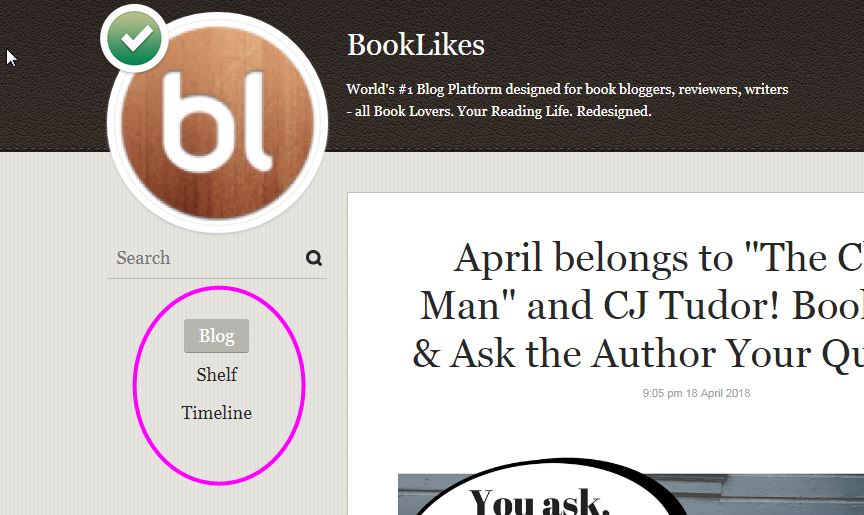
If you don't wish to show off all your bookish places, you can hide them.
They will disappear form the public page but WON'T disappear from your internal view -- YOU WILL STILL VIEW THEM ONCE YOU LOG INTO YOUR BOOKLIKES.
If you wish to switch off blog, shelf, timeline, please go to your Settings (the main menu), and choose Blog tab. Scroll down and decide which pages should be visible.
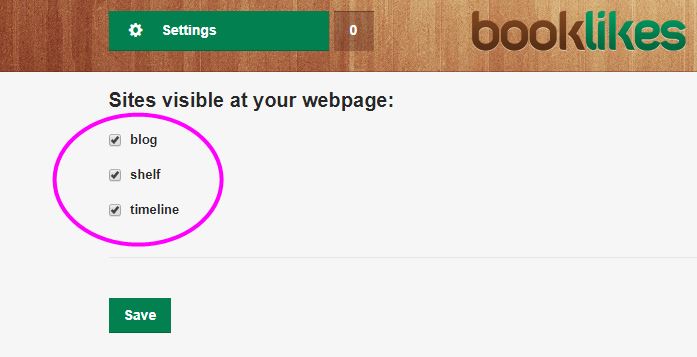
If you decide to switch them off, they won't be visible in the menu on your webpage.

Remember to click Save to make the changes visible.

However, they will stay in your main menu. Visible only to you and letting you keep on shelving and organizing your bookshelf or sharing your book reviews.
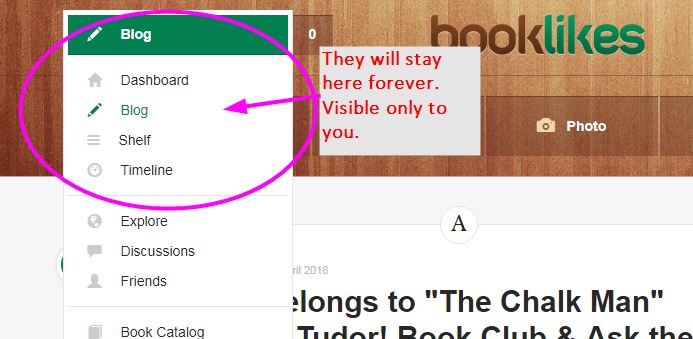
Please remember that although you switch off the shelf and blog pages, your bookish activities will be visible for your followers - your books and reviews will be visible on Dashboards of people who are following your blog, and on the book pages.
Happy blogging!
April belongs to "The Chalk Man" and CJ Tudor! Book Club & Ask the Author Your Question

What are your reading in April? We're reading The Chalk Man by CJ Tudor! And we have a surprise for BookLikes readers. CJ Tudor agreed to answer questions from her fans and readers!
Make sure to leave your question to the author below and share your book review. If you haven't read the book yet, please JOIN the Book Club and the discussion groups. Links are below:
⭐ Ask a Question with C.J. Tudor, CLICK TO leave your question for the author
YOU ASK A QUESTION, CJ TUDOR ANSWERS.
LEAVE YOUR QUESTION TO THE AUTHOR IN THE COMMENT SECTION BELOW
The Event is also on Facebook, share it among your friends :)
Click to go to the Event on Facebook
Click to go to the Event on Facebook
⭐ CLICK to go to The Chalk Man Buddy Read Book Club
⭐ CLICK to go to The Chalk Man discussion group
⭐ CLICK to share your answers in The Chalk Man Questionnaire - 10 Questions about the book
We'd love to know how did you like the book and what are the best (and the worst, if any) parts and characters in it. We've prepared a set of questions and we'd like to ask you to share your views :)
You can share it in the discussion group OR on your blog with The Chalk Man 10 Questions tag. Thank you!
1. How do you like the characters, their personalities and motivations? Are they well developed or one-dimensional ?
2. How do you like the twists & turns, did they meet your expectations, did they make you guess, did they glued you to the book?
3. At what point in the book you solved the mystery secret or at least you thought you did ;)?
4. Did you pick out some clues hidden by the author?
5. They say the book is Stephen King-like, do you agree?
6. What lines struck you?
7. Did the book ending fulfill your expectations?
8. To what kind of reader would you recommend the book?
9. Was it a good mystery read?
10. Have you reviewed the book on your blog? If so, please add a link to your review.
Psst. Please remember that some readers haven't read the book yet so if you'd like to reveal more facts, please use the spoiler tag.
It began back in 1986, at the fair, on the day of the accident. That was when twelve-year-old Eddie met Mr Halloran - the Chalk Man. He gave Eddie the idea for the drawings: a way to leave secret messages for his friends and it was fun, until the chalk men led them to a body. Thirty years later, Ed believes the past is far behind him, until an envelope slips through the letterbox. It contains a stick of chalk, and a drawing of a figure. Is history going to repeat itself? Was it ever really over? Will this game only end in the same way?
#36 Follow Friday with book bloggers: Brenna M's Book Blog

Hello Friday! Hello Follow Friday with book bloggers! Meet Brenna and her amazing book recommendations!
Follow Brenna M's Book Blog: http://brennam.booklikes.com/
What are you reading right now? How do you like it?
City of Hope by Kate Kerrigan. So far, I am enjoying this. It’s set in 1930’s in Ireland. Historical fiction always interests me., but I’m just starting off so we’ll see. The character is a strong female character who just loses her husband, and goes back to New York City rather than stay in small town Ireland.
The House on Foster Hill by Jaime Jo Wright. I’m just a chapter or 2 into this one as well, but I am liking this one a little better. Add a little mystery to the historical fiction, and my interest is peaked. A woman purchases an old house sight unseen and wants to renovate. And the mystery starts as she arrives to find it delapitated and with a lot of old folklore stories about it.
Which book made you a book lover?
The Cay by Theodore Taylor. I was 9 years old and saw the movie with James Earl Jones and just had to read the book. Ever since then, my love for books and libraries started. I loved disappearing into the Caribbean in the Cay and that idea of disappearing into a book is just as strong. The thought of visiting a different US state or a different country sometimes makes me feel like I have actually been there. All of this just by browsing a shelf or two at the local library.
How did your book blogging adventure start? What do you enjoy the most about it?
About 5 years ago, I saw something posted about a book giveaway. It was on Goodreads and I signed up for that one and a few others. I actually won 2 of them almost right away. I did not feel comfortable about not at least rating it. So for any book I have received either in a giveaway or offered from author, I rated it and wrote a review. Some time later, every book I read was reviewed. One of the things I was and still am not fond of on the one site, though, is there is not a lot of interaction between myself and the friends list I had. And that meant fewer reviews that I read, and fewer recommendations from friends. I found Booklikes and started to share my reviews and a few quotes. I found it a lot more interactive when it came to having a strong feeling about a book and wanting to talk about it. I’ve met a lot of great people, and my “friends list”/followers list is a little more international as well.
You mention that you have Italian, German and irish roots in your family. Does it reflect your reading preferences?
It does reflect a lot more than I realized at first. My grade school was not very diverse but did encourage a lot of reading. The books that I tended to lean to and pick out myself always were in a different culture (i.e. a book set in the south or in England, or with the main character being from a foreign country).
Which books are you most excited recommending to your followers?
The Invisible Life of Ivan Isaenko by Scott Stambach. I loved this book and cannot wait to read more of Mr. Stambach. This was his debut novel, set in an orphanage for “gravely ill” children because Ivan was born with physical disabilities. Mr. Stambach has used humor, heartach, love and hope beautifully in this book with a not so “perfect” main character. I couldn’t help but love Ivan by the end of the book.
Tobit and the Hoodoo Man by E.S. Kraay is another one I really enjoyed. This is a combination of historical fiction set during the Civil War and mystical realism. 3 dimensional characters through the book, good story telling, definitely I found it well written and I didn’t want to put it down.
Tin Lily by Joann Swanson. Another debut author. I found this book short, yet captivating. This is a young adult novel, and the topic is a tough one from the first chapter when Lily witnesses her mom’s murder.
How do you find new books to read?
My more fun way to do this is, time willing, to walk up and down a few of the aisles of the library. The closet one has a library staff pick area, a seasonal area or a topic specific area (i.e. photograpy, gardening, politics, whatever), and even a teen pick on the endcaps of the aisles. Always fun going through those aisles. Used book sales are of interest to me, too. I love browing the books and seeing what pages have been earmarked or if the person put their name in it to see where it came from.
Are you an adventurous reader picking up new genres or are you loyal to your favorite book genres?
I am gradually getting better at being adventurous, but young adult and historical fiction still tend to be the go to genres.
How much time do you spend reading daily?
Unfortunately it’s not always daily. I try to get at least a half an hour in every day, if not more.
What are you three favorite book covers?
I’m not sure if I really have a favorite cover. I do check them out, sometimes the first impression with the title helps me to decide. But I usually don’t spend too much time on them. (sorry, front cover artists).
You write: My local library is one of my favorite hangouts. How often do you visit your library?
I try at least twice a week. If i take too long in getting back, the staff start asking where I’ve been!
Why reading is important to you?
It’s my down time, relax time. A way for me to get out of the stress related run on sentences runnig through my head after a long day at work. A perfect stay-cation kind of moment.
How do you choose your next book to read?
See # 6. For the official next book, I tend to read series books in order and close to gether. If not part of a series, it doesn’t always make sense how i pick them. Sometimes, it’s a combination of the cover, title, and blurb sounding interesting (sometimes this does disappoint, though). Other times it’s an author or subject i want to get back to reading.
A paper book or an e-book?
Paper book definitely. It’s a way for me to chill out away from electronics.
Three titles for a sunny spring day?
The All-Girl Filling Station's Last Reunion by Fannie Flagg
Tuck Everlasting by Natalie Babbitt
Breakfast at Tiffany's by Truman Capote
Favorite quote?
It seemed clear that wars were not made by generations and their special stupidities, but that wars were made instead by something ignorant in the human heart”
― John Knowles, A Separate Peace
If you could pair a book with a drink, what would you prepare to sip while reading?
Steaming hot green tea
Shelfie time! Please share your home library photos :)

ARCs
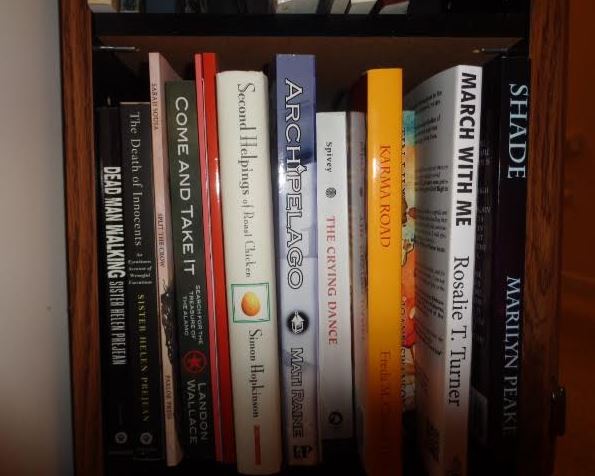
Signed by author
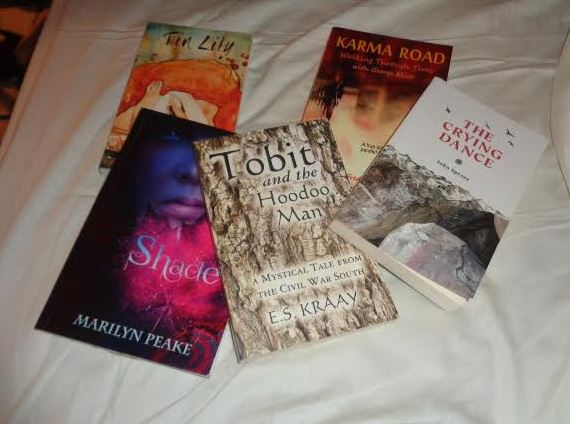
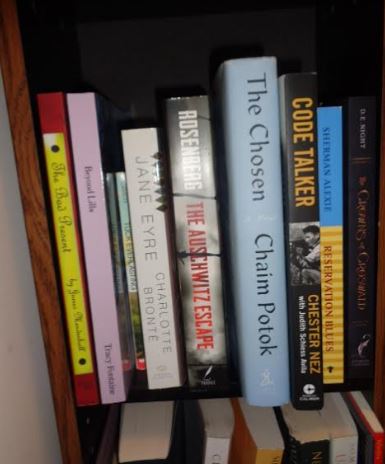
Thank you!
*
Have you missed previous Follow Friday talks? Use ffwithbookbloggers tag or click the catch up links below:
What are you reading now? 3 ways to find a new book on BookLikes

We're always looking for new books, new authors, new recommended reading. And we're always happy to look at your blogs and shelves, after all, who's better in recommending books than book lovers and bloggers?!
Here are three places to find a new book on BookLikes.
1. Your Dashboard
Your Dashboard is your bookish feed with your friend's reviews and bookshelf updates. Sometimes, however, you may overlook what titles have been picked up by bloggers you're following. Then all you have to do is to hover over the avatar on your Dash and to sneak peek into your friend's currently reading shelf.
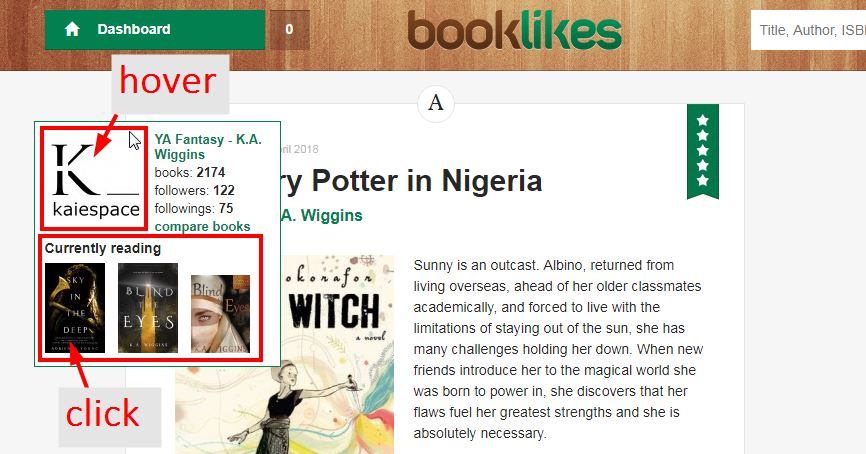
In order to have new bookish actions and reviews on your Dashboard, follow new bloggers. You can find them via the Book Catalog page (click the book cover and find new reviews on the book pages) and the Book Explore (click the blog title to visit the blog).
To follow new blogs remember to click Follow in the upper right corner once on the blog page.

2. Visit blogs and Timeline
When you visit a new blog page, remember to take a look at the Timeline. It's a graphic representation of the blogger's BookLikes actions and a nice overview of what the person is reading.
The books with currently reading status are on the top. Click the cover to +Shelf/+Post the book.

3. Visit blog and book boxes
Did you know that all BookLikes blogs present books from the blogger's currently reading shelf? Make sure to search the currently reading boxes in the right or left column (depends on the blog layout) once you visit your friends' blogs.
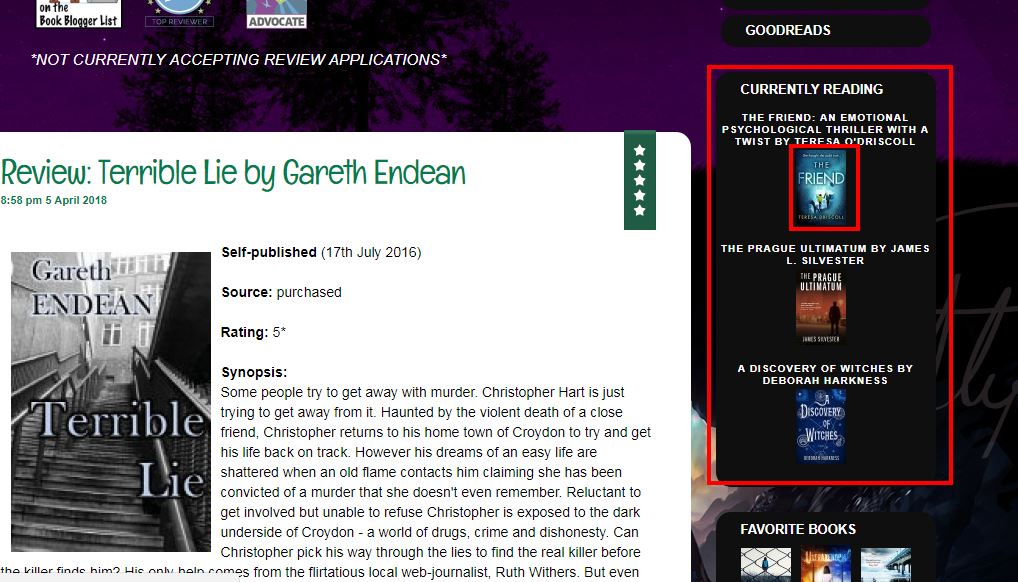
What are you reading now? :)
Looking for more BookLikes how-to and tutorial posts? Click HERE to view our tutorials and make sure to follow BookLikes blog to view our news on your Dashboard.
P.S. The e-mail notifications are under reviews. We're working to bring them back ASAP. Sorry for any inconvenience.
Interview with CJ Tudor, author of "The Chalk Man" + Book Club and Ask a Question
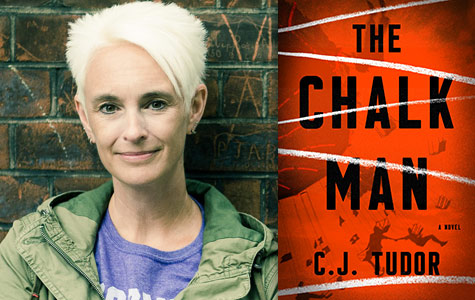
C.J. Tudor, author of the bestselling and widely acclaimed The Chalk Man, talks to us about her debut!
Tell us a few words about yourself - whatever you want to share about your personal and professional life, but also why you decided to become a writer.
Well, I’m 46. I live in Nottingham with my partner and little girl. I left school at sixteen and I’ve had many, many jobs over the years – from television presenter to dog-walker. But I’ve always loved making up stories. When I was very small I lived in a complete fantasy world. Then, in my teens, my English teacher, Mr Webster, really encouraged me. He once wrote on the bottom of an essay: ‘If you do not become Prime Minister or a best-selling author I will be very disappointed!’
It began back in 1986, at the fair, on the day of the accident. That was when twelve-year-old Eddie met Mr Halloran - the Chalk Man. He gave Eddie the idea for the drawings: a way to leave secret messages for his friends and it was fun, until the chalk men led them to a body. Thirty years later, Ed believes the past is far behind him, until an envelope slips through the letterbox. It contains a stick of chalk, and a drawing of a figure. Is history going to repeat itself? Was it ever really over? Will this game only end in the same way?
How did you start writing?
I didn’t properly knuckle down to try and write a book until my mid-thirties. I was too busy having fun in my twenties! The first thing I wrote was rubbish, but at least I’d proved to myself that I could actually finish something. It still took me over ten years to get published. There were many rejections and failed projects along the way!
What are you writing habits? How often do you write, and how long at one time?
Well, now I’m lucky enough to write full time I usually go and sit in a coffee shop for a few hours. I don’t stick to rigid word counts or anything like that. I write for as long as I feel like and then go for a walk or head to the gym. Something to clear my mind. Then, it’s usually time to pick up my little girl from school and chaos descends until she goes to bed! I might squeeze in another hour or two in the evening.
Did you love The Chalk Man? Want to ask the author a question? Hop on board! Leave your question(s) in The Chalk Man discussion group and we'll forward them to C.J. Tudor!
LEAVE YOUR QUESTION(S) TO CJ TUDOR
What advice would you give to someone who wants to become a writer - so, to someone like you the person you were, maybe a year or more ago?
Never give up. It isn’t too late - I’m a debut author at 46. Don’t get disheartened by rejections. We all get them. You don’t need expensive courses – the slush pile works. Don’t try to write what you think publishers want because that changes all the time. Stick to your guns and write what you love. Oh, and a good agent is everything!
Your first book is a mystery-thriller - is this your favorite genre? What do you like to read?
I like anything dark and twisty. Crime, thrillers. I’m partial to a bit of sci-fi. Horror is good too.
Who are your favorite authors and have they inspired you in any way?
Stephen King, Michael Marshall and Harlan Coben. I’ve been reading Stephen King since I was twelve. When he tweeted and recommended The Chalk Man recently it was a dream come true. I’m still grinning!
Want to read something good? You won't find it on the front bestseller table at your bookstore, but it's new, and will be there. THE CHALK MAN, by C.J. Tudor. If you like my stuff, you'll like this.
— Stephen King (@StephenKing) February 20, 2018
What would you like to say to your readers? What do they need to know about you and your first book? Is it very, very spooky?
It’s creepy rather the scary. The story is set in 2016 and 1986. That’s when we first meet twelve-year-old Eddie and his friends. They invent a game, drawing chalk figures on the ground to send secret messages between their gang. But the game turns sinister when the chalk men start to appear on their own and lead them to the body of a girl in the woods.
Thirty years later, Ed thinks the past is behind him. Then he receives a letter containing just two things – a drawing of a stick figure and a piece of chalk...
Reviews of The Chalk Man are stunning, I mean among regular readers, not just the press. What do you think makes the book so attractive and unique?
Blimey – I wish I knew! I think it’s different to a lot of recent psychological thrillers. There’s a dash of horror. It’s been compared to Stranger Things and IT, and 80’s nostalgia is big again right now. Not that I could have predicted that when I wrote the book back in 2015!
I heard that you have a two-book deal, is this the case? Are you now writing book number three? Are the books interlinked in any way?
No, they’re all stand-alone but the stories do all exist in the same universe, so readers may spot some subtle references. I haven’t ruled out linking them or returning to some of the characters in the future! Watch this space!
Haven't read The Chalk Man yet? Want to re-read? Great! Join The Chalk Man book club!
LET'S BUDDY READ!
 3
3
#35 Follow Friday with book bloggers: LILLELARA

Hello Friday! Hello Follow Friday with book bloggers. Meet a blogger behind the LILLELARA blog. If you're curious what the blog title means, keep on reading!
Follow LILLELARA on BookLikes: http://lillelara.booklikes.com/
What are you reading right now? How do you like it?
I started Yoon Ha Lee´s Ninefox Gambit, a confusing military science fiction novel. Not sure what to think of it yet and not sure if I´m going to finish it. I just finished Kerry Greenwood´s Cocaine Blues and this one annoyed the heck out of me. And then I´m still listening to the audiobook of Harry Potter and the Goblet of Fire. This book will never be my favorite Harry Potter, since Harry and Ron are not on speaking terms with each other for a considerable part of the novel. But the narration by Stephen Fry is brilliant as always and I like the darkness of the story. And the final chapters are so sad, gripping and amazing.
How did your book love begin?
I discovered my book love about 7 years ago at the age of 30, when I purchased my very first Kindle. Suddenly I started reading in earnest and instead of 5 books per year, I read 50 books per year. Whenever I had some time to spare, I spend it with a book (an e-book) in my hands. But don´t ask me what has happened back then to ignite the passion for reading in me. I simply don´t know.
Your blog name is “LILLELARA”. Can you tell us more about the phrase?
Lille and Lara were the names of two of my adorable cats. I have always been responsible for naming our cats and I´m giving them the most nonsensical names. There was Musch, one of Musch´s kittens I called Præstegård (the Danish word for a parsonage) and then I named Lille as well (lille means small in Danish). We got Lara from an animal shelter, I obviously didn´t get to name her. But in the spirit of giving cats stupid names, I always called her pimsiwimsi, or abbreviated pims. As you can see, there isn´t a deeper meaning behind my blogname.
We’ve spotted a book-to-movie tag on your blog. Is movie watching your second passion next to reading?
I haven´t done a lot of book-to-movie posts, but they are always a whole lot of fun to do. I love watching movies, even though I´m not watching as many movies (and series for that matter) as I used to. I recently watched the movie adaption of Jeff VanderMeer´s Annihilation. I really didn´t like the book, the movie however is mesmerizing and visually stunning. I highly recommend watching the movie instead of reading the book.
The book cover vs the movie poster
You live in Germany but you’re blog is in English. Do you read books in those two languages? If so can you tell our readers how the language affects the book experience?
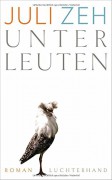 I try to read books in the language they are originally written in, which in my case is doable for German, Danish and English books. Books tend to lose some of their magic when they are getting translated. Just thinking about Juli Zeh´s Unterleuten makes we wonder, how someone could possibly translate this book into another language without altering the meaning of certain sentences. It´s a joy to read books by skilled German authors, who have a grasp on the language and know how to construct a proper sentence. If an author doesn´t have this skill, German can be an incredibly stilted language and those books become a tedious reading experiences.
I try to read books in the language they are originally written in, which in my case is doable for German, Danish and English books. Books tend to lose some of their magic when they are getting translated. Just thinking about Juli Zeh´s Unterleuten makes we wonder, how someone could possibly translate this book into another language without altering the meaning of certain sentences. It´s a joy to read books by skilled German authors, who have a grasp on the language and know how to construct a proper sentence. If an author doesn´t have this skill, German can be an incredibly stilted language and those books become a tedious reading experiences.
And this is exactly the reason, why I´m reading more books in English than in German. It´s incredibly hard to find well-written German books among the masses of poorly written ones and my reading taste doesn´t align with the general taste of my fellow countrymen. I was looking at a bestseller list today and almost half of the list were crime books, set in a specific German region (so called Regionalkrimis). And most of these books are incredibly bad and poorly written.
How much time do you spend reading daily?
It depends on my spare time, the book that I´m reading and my general mind set. I´m reading at least an hour a day, but it can be much more than that.
Your bookshelf is full of different book genres. What are you favorite genres? Why are they special?
My favorite genre got to be science-fiction. I love learning about different cultures and technologies and how we sometimes can learn something about our own culture by reading a book set in a futuristic world. I have read some incredibly good books in this genre and I have so many more to explore.
Besides science-fiction I´m reading almost anything. Classics, historical fiction, mysteries, psychological thrillers, literary fiction, non-fiction. I´m willing to give at least every genre a try. Even fantasy and romance, which are my least favorite genre.
Why reading is important to you?
Reading is incredibly relaxing and it is my way to reduce stress. I´m an introvert and I´m working in a job where I´m talking to people all day long. Being alone with a book after a long day at work is liberating and reading is something I´m doing for me and not for other people.
What are you three favorite book covers?
I love this specific Mary Stewart cover of Nine Coaches Waiting. Every time I look at it I want to sit in a cabriolet, driving through the mountains in France, heading towards an adventure of a lifetime.
The Penguin English Library editions are so pretty. They are all gorgeous, but my favorite is the edition of Far from the Madding Crowd.
And I really like the Patricia Highsmith covers by Virago, especially this one because of its simplicity:
How do you choose your next book to read?
I´m one big mood reader. I choose my next book on a complete whim.
Which books are you most excited recommending to your followers?
Chernobyl Prayer by Svetlana Alexievich. It´s infuriating, harrowing, devastating, saddening and bloody fantastic.
A book that changed your life?
My most dreaded question and I´m going to be a bore with this one. I can´t think of a book that has changed my life. I will name two books, however, that changed my reading life. Cloud Atlas and A Place of Greater Safety. These two books made me realize that there isn´t an English book out there that is too difficult to read.
A paper book or an e-book?
A couple of years ago I only read e-books, nowadays I prefer paper books. There is something satisfying in holding a physical book in your hands and to see the progress you are making.
Three titles for a sunny spring day?
Three books from different genres, all of them exciting and fun to read. Perfect for a sunny spring day:
Favorite quote?
“If you can't explain it to a six year old, you don't understand it yourself.”
Albert Einstein
If you could pair a book with a drink, what would you prepare to sip while reading?
Red wine. I really like red wine. If someone could invent a non-alcoholic beverage with the same taste as a good red wine, I would be in heaven. But since this drink doesn´t exist, I´m drinking ordinary water on a workday and treat myself to a glass of wine on the weekend.
Shelfie time! Please share your home library photos :)
My first shelf contains all of my Christie´s, my read non-fiction books and my Harry Potter books:
Picture Christie-Shelf
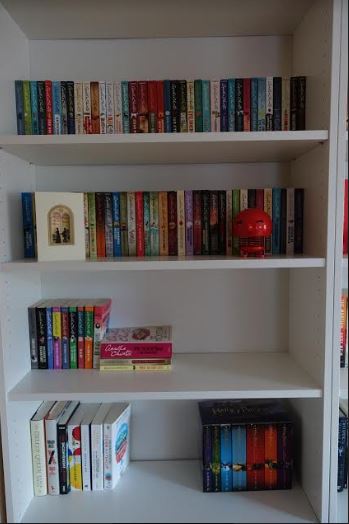
My classics shelf: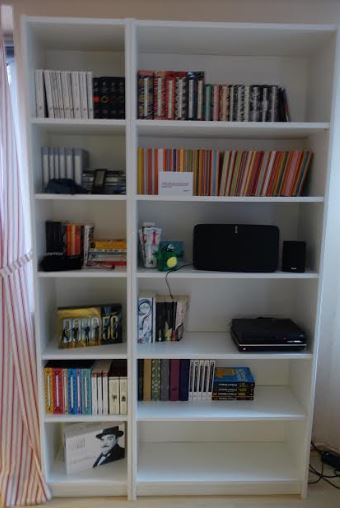
My read shelf:
And my TBR-Shelf:
Thank you!
*
Have you missed previous Follow Friday talks? Use ffwithbookbloggers tag or click the catch up links below:
#34 Follow Friday with book bloggers: Toni ->
- #33 Follow Friday with book bloggers: KOMET ->
- #32 Follow Friday with book bloggers: So it goes ->
- #31 Follow Friday with book bloggers: Broken Tune->
#30 Follow Friday with book bloggers: Jodi's Classroom Favorites -> - #29 Follow Friday with book bloggers: Red Lace Reviews ->
- #28 Follow Friday with book bloggers: SENSITIVEMUSE ->
- #27 Follow Friday with book bloggers: Sorry kids, no feet ->
#26 Follow Friday with book bloggers: Elentarri's Book Blog -> - #25 Follow Friday with book bloggers: Romance Book Reviews For You ->
- #24 Follow Friday with book bloggers: Kat's Books ->
- #23 Follow Friday with book bloggers: My Never Ending List ->
- #22 Follow Friday with book bloggers: 21 Shelfies ->
- #21 Follow Friday with book bloggers: Mary's Books ->
- #20 Follow Friday with book bloggers: Murder by Death [Nominated] ->
- #19 Follow Friday with book bloggers: Wanda's Book Reviews ->
- #18 Follow Friday with book bloggers: Leigha's Little Library ->
- #17 Follow Friday with book bloggers: Lost Girls Reviews ->
- #16 Follow Friday with book bloggers: OBSESSION WITH WORDS ->
- #15 Follow Friday with book bloggers: Bookish thoughts!!! ->
- #14 Follow Friday with book bloggers: Char's Horror Corner [Nominated] ->
- #13 Follow Friday with book bloggers: Obsidian Blue ->
- #12 Follow Friday with book bloggers: 99 problems, and a book ain't one ->
- #11 Follow Friday with book bloggers: Book Cupidity [Nominated] ->
- #10 Follow Friday with book bloggers: The Book Gourmet ->
- #9 Follow Friday with book bloggers: Midu Reads [Nominated] ->
- #8 Follow Friday with book bloggers: Momma Says to Read ->
- #7 Follow Friday with book bloggers: Sailing in a Sea of Words ->
- #6 Follow Friday with book bloggers: That's What I'm Talking About ->
- #5 Follow Friday with book bloggers: Silence in the library ->
- #4 Follow Friday with book bloggers: Nicole Reads ->
- #3 Follow Friday with book bloggers: Tigus ->
- #2 Follow Friday with book bloggers: Punya Reviews ->
- #1 Follow Friday with book bloggers: Jennifer's Books ->
You can nominate your blogger friends to the Follow Friday interview! Leave the URL address and a short note in the comment section below.
See you next Friday!
How to add a book to your bookshelf on BookLikes?
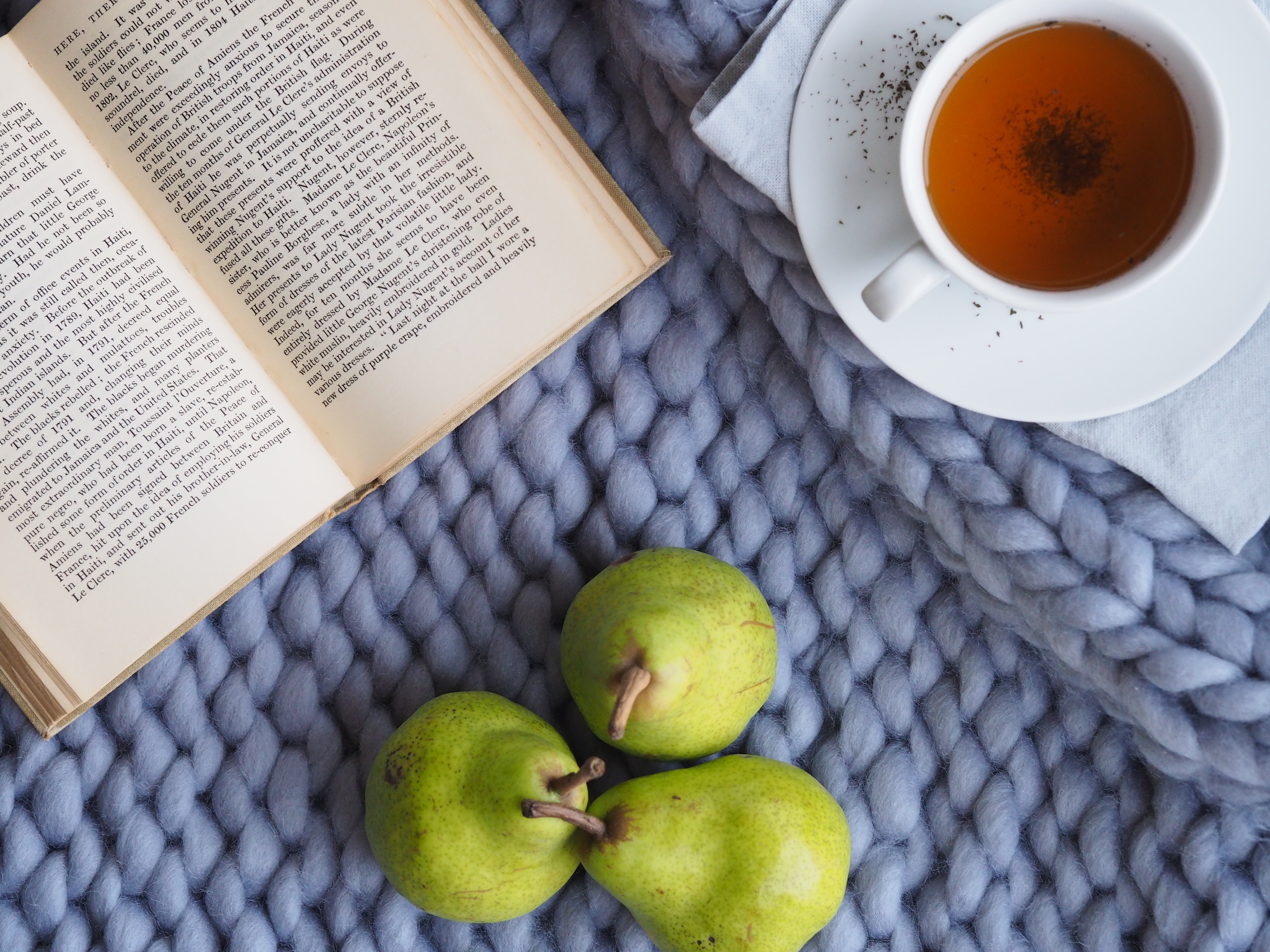
BookLikes is not only a blog platform but also your virtual bookshelf! Here are 3 tips on how to add a book to your Shelf on BookLikes.
1. Click the book covers
All book cover in the service are clickable. Thais means that once you click on the cover you'll see either a book pop up or you'll be moved to a book page. Both views have +Shelf and +Post options.
The shelving on BookLikes is split into two parts: the quick shelving (via +Shelf button under each book cover) and the advanced shelving (via +Shelf advanced pop up)

If you wish to add a book to your bookshelf, just click the cover and +Shelf it!
Where you can find the book covers to click?
- on your Dashboard (this is your book news feed where you see reviews and bookshelf updates from blog you follow on BookLikes)
- on the Book Catalog page (this is a page where you can check what BL community is reading, searching and shelving
- on the Reading List page (this is a page where you can view the reading lists created by BookLikers)
2. Visit Blogs and repeat 1) click the book covers
Make sure to visit fellow bloggers on BookLikes! The blogs are full of reviews and recommended reading so it's really easy to find new books to shelve! As we mentioned above ALL book covers are clickable. This includes the book cover on the blogs and on the shelves. So when you read BookLikes blogs make sure to click the cover and you'll be moved to a book page where you can use +Shelf to add the title to your shelf.


Click +Shelf to view the reading status options
Where to find blogs?
- on the Explore page (this is a page where you can check the most recent reviews published by BookLikes community, click the avatar or the review title to be moved to a blog)
- in the Discussion groups (this is a page where you can join the discussions or create yours, click the blog name or the avatar to be moved to a blog)
3. Use the search box and repeat 1) click the cover
Type in the title and author in the search box, click the book and +Shelf

If the book is not available, please use the ISBN number. If this won't help, consider adding the book manually - click the Add a new book and fill up the new book form.
You can also use the Shelve it feature which allows you shelve the books directly from Amazon book pages -- read more about the Shelve it feature HERE.
You may also find these posts helpful:
- Favorite, Wishlist, Private -- additional shelving options for your books
- Book titles are tags - finds book reviews and book posts
- 6 tips for BookLikes newbies
- BookLikes How to: book search tips
- BookLikes How-to: How to Edit the Book Catalog
- BookLikes How-to: Advanced Shelving Options
- 4 ways to give a shout out to a beloved title
Click HERE to read more tutorials about BookLikes features
Happy shelving!
An Interview with Rebecca D. Costa, American Sociobiologist + Non-fiction Giveaway
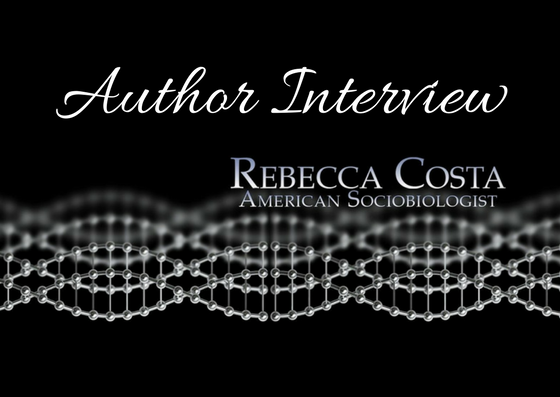
Rebecca D. Costa is an American sociobiologist and futurist. She is a world renowned expert on "fast adaptation" in complex environments, and a recipient of the prestigious Edward O. Wilson Biodiversity Technology Award. Her work has been featured in the New York Times, Washington Post, USA Today, The Guardian, and other leading publications.
Read our interview with Rebecca to learn more about her writing habits and inspiration!
NON-FICTION GIVEAWAY!
WIN On the Verge by Rebecca D. Costa
According to Costa, advances in Big Data, predictive analytics, genomics, artificial intelligence, and other breakthroughs have made it possible to pinpoint future results with mind-blowing accuracy - cracking the door to what Costa calls predaptation: the ability to adapt before the fact. Never before has the information needed to avert danger, get the jump ahead of others, or prepare for the inevitable been so clearly within grasp.
Through fascinating real-life examples, Costa reveals how technology has brought nations, businesses, and individuals to the edge of clairvoyance. Yet, our ability to act on foreknowledge often falls short - causing leaders to squander the advantage of preemption. To counteract this failure, Costa illuminates 12 principles of adaptation, and predaptation, used to succeed in fast-moving environments.
Tell us a few words about yourself – whatever you want to share about your personal and professional life, but also why you decided to become a writer.
After spending much of my childhood abroad and enjoying a successful career in Silicon Valley, I returned to my love of Charles Darwin and study of human evolution. My work in technology caused me to observe a growing gap between the speed at which change was occurring and the slow pace of physiological adaptation. This compelled me to write my first book, The Watchman’s Rattle, which became a success in 21 countries, and which thought- leaders E.O. Wilson, Richard Branson, Dr. James Watson stepped forward to lend their support to. Six years later I published On the Verge.
How did you start writing?
Upon selling my company in Silicon Valley I retired to the small hamlet of Carmel, California, where I began combing through notebooks I maintained throughout my career, working with companies such as Apple Computer, Amdahl, Oracle, General Electric, etc. The notebooks inspired me to write my first book.
What are your writing habits? How often do you write, and how long at one time?
My writing comes in fits and starts. Similar to a radio station, clarity comes and goes. I am often awoken at 3 AM to write - and the duration of any writing period can last anywhere from a few hours to a few days. Then, just as suddenly, the signal is gone. For this reason, it is impossible to keep any semblance of a normal life when writing. There is a reason gifted writers are often alcoholics, drug addicts and have disagreeable personalities – writing is madness.
What advice would you give to someone who wants to become a writer – to someone like you before you became a published author?
Writing is not a choice. It’s a calling. If you have the calling, then regardless of whether one person, or millions, read your work, the process is gratifying. You won’t make any money writing a book, so any illusions about getting rich should be quashed early. Find a good agent and editor and always listen to your editor.
Who are your favorite authors?
E.O. Wilson, Yuval Noah Harari, Jared Diamond, Carson McCullers.
What would you like to say to our readers? What do they need to know about your
books?
The opposite of politics is science. The more facts we have at our disposal the better able we are to guard against manipulation. But facts don’t have to be boring. Good storytelling is good storytelling regardless of the subject. Our favorite teachers in school made history come alive, science fun, and turned mathematics into a game. Good nonfiction writing should be held to that standard – it should engage us to the point where the time flies by and we didn’t even notice we were learning something new. I hope my easy style is what separates me from other writers in my genre.
Love science books?
Join The Flat Book Society Book Club on BookLikes.
We're here to read and discuss what would generally be called 'popular' science titles; one book every other month. Welcome!
 2
2
#34 Follow Friday with book bloggers: Toni

Hello Friday! Hello Follow Friday with book bloggers!
Meet Toni, a book lover with a big virtual library and an amazing dream home bookshelves. Check them out!
Follow Toni's blog: http://toniosborne.booklikes.com/
What are you reading right now? How do you like it?
Cosega Search by Brandt Legg. I like it so far, only 1/3 into it.
How did your book love begin?
I don't really remember books were always part of my life even as a toddler....so many many years ago.
Are you a book collector or a recommender?
According to your Shelf you’re read over 500 books! How much time do you spend reading daily?
What are you favorite genres? Why are they special?

Why reading is important to you?
Do you review every book you read? How does your review process look like?
What are you three favorite book covers?
How do you choose your next book to read? Favorite authors, reading list, friends’ recommendations?
Which books are you most excited recommending to your followers?
A book that changed your life?
A paper book or an e-book?
Three titles for a sunny spring day?
Favorite quote?
live for today because yesterday is gone and tomorrow may never come
Shelfie time! Please share your home library photos :)

Thank you!
*
Have you missed previous Follow Friday talks? Use ffwithbookbloggers tag or click the catch up links below:
- #33 Follow Friday with book bloggers: KOMET ->
- #32 Follow Friday with book bloggers: So it goes ->
- #31 Follow Friday with book bloggers: Broken Tune->
#30 Follow Friday with book bloggers: Jodi's Classroom Favorites -> - #29 Follow Friday with book bloggers: Red Lace Reviews ->
- #28 Follow Friday with book bloggers: SENSITIVEMUSE ->
- #27 Follow Friday with book bloggers: Sorry kids, no feet ->
#26 Follow Friday with book bloggers: Elentarri's Book Blog -> - #25 Follow Friday with book bloggers: Romance Book Reviews For You ->
- #24 Follow Friday with book bloggers: Kat's Books ->
- #23 Follow Friday with book bloggers: My Never Ending List ->
- #22 Follow Friday with book bloggers: 21 Shelfies ->
- #21 Follow Friday with book bloggers: Mary's Books ->
- #20 Follow Friday with book bloggers: Murder by Death [Nominated] ->
- #19 Follow Friday with book bloggers: Wanda's Book Reviews ->
- #18 Follow Friday with book bloggers: Leigha's Little Library ->
- #17 Follow Friday with book bloggers: Lost Girls Reviews ->
- #16 Follow Friday with book bloggers: OBSESSION WITH WORDS ->
- #15 Follow Friday with book bloggers: Bookish thoughts!!! ->
- #14 Follow Friday with book bloggers: Char's Horror Corner [Nominated] ->
- #13 Follow Friday with book bloggers: Obsidian Blue ->
- #12 Follow Friday with book bloggers: 99 problems, and a book ain't one ->
- #11 Follow Friday with book bloggers: Book Cupidity [Nominated] ->
- #10 Follow Friday with book bloggers: The Book Gourmet ->
- #9 Follow Friday with book bloggers: Midu Reads [Nominated] ->
- #8 Follow Friday with book bloggers: Momma Says to Read ->
- #7 Follow Friday with book bloggers: Sailing in a Sea of Words ->
- #6 Follow Friday with book bloggers: That's What I'm Talking About ->
- #5 Follow Friday with book bloggers: Silence in the library ->
- #4 Follow Friday with book bloggers: Nicole Reads ->
- #3 Follow Friday with book bloggers: Tigus ->
- #2 Follow Friday with book bloggers: Punya Reviews ->
- #1 Follow Friday with book bloggers: Jennifer's Books ->
You can nominate your blogger friends to the Follow Friday interview! Leave the URL address and a short note in the comment section below.
See you next Friday!
"The Chalk Man" Buddy Read & Ask a Question with CJ Tudor: March 29 - April 26, 2018
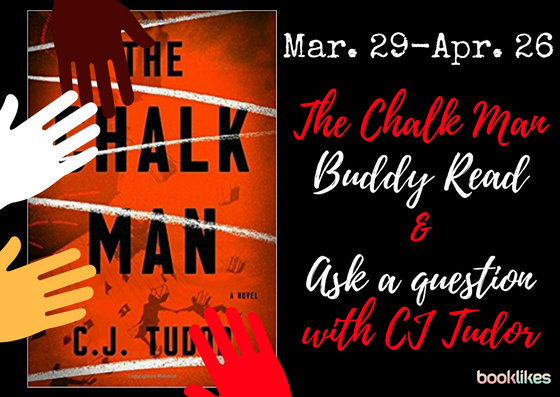
Readers are loving The Chalk Man by C.J. Tudor. Have you read it? Did you love it? Or maybe the title is sitting on your TBR plie? Or maybe you haven't heard about the book? Eee, impossible! ;)
Regardless of your reading experience, feel invited to join The Chalk Man Buddy Read! Let's read The Chalk Man together, and share your thoughts and opinions, find the clues and make the guesses. And find the killer, together!
Join the book club by clicking the following link and then clicking Join, and start reading!
Make sure to add your reading experiences in The Chalk Man discussion group. Beware of the spoilers!
And if you have any questions about the book or C.J Tudor's writing inspirations and plans, we have a great surprise! C.J. Tudor agreed to answer the questions from BookLikes readers!
Add your question(s) in the following discussion group and we'll forward them to C.J. Tudor! Isn't that exciting!?!
Go to the Ask a Question with C.J. Tudor group and post your question!
Still not sure if The Chalk Man is for you? Just check those reviews!
It began back in 1986, at the fair, on the day of the accident. That was when twelve-year-old Eddie met Mr Halloran - the Chalk Man. He gave Eddie the idea for the drawings: a way to leave secret messages for his friends and it was fun, until the chalk men led them to a body. Thirty years later, Ed believes the past is far behind him, until an envelope slips through the letterbox. It contains a stick of chalk, and a drawing of a figure. Is history going to repeat itself? Was it ever really over? Will this game only end in the same way?
BookLikes bloggers book reviews:
This is pretty dazzling debut, especially given all the clunky "just OK" mysteries that litter my house, library history, recommendations and my Read piles. I'll take a mystery no matter what, but it's very nice to get a good one... read more on "So it goes." blog
What a crazy book. I loved it from start to finish... by Heather's Book Blog
"The Chalk Man" has a plot, constructed around violence, secrets, fear, transgression and revenge, that is intricate and not fully disclosed until the final chapter. Yet it is not the plot but the depth of the characterisation of Eddie as child and man that makes the book special... by Audio Book Junkie
This was an excellent book that had me guessing throughout. At one point, maybe twice, I had reason to point a finger at all the boys involved in the book. I just kept going back and forth. It was crazy!The author did a great job... reviewed by debbiekrenzer
THE CHALK MAN is a gripping exploration of the dark places within the human mind and an impressive debut. Filled with horror. Frightening, compelling, taut, creepy and chilling! A shocking spine-tingling conclusion... read more on JDCMustReadBooks
I liked how we learn more information about the past and individual’s true colors were shining through. It’s funny how some individuals never change and how some people think they have changed but they haven’t. I enjoyed the novel.. read more on My Never Ending List
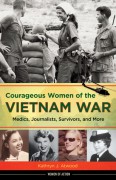







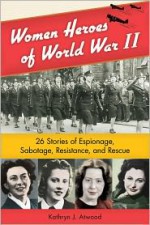




 1
1
